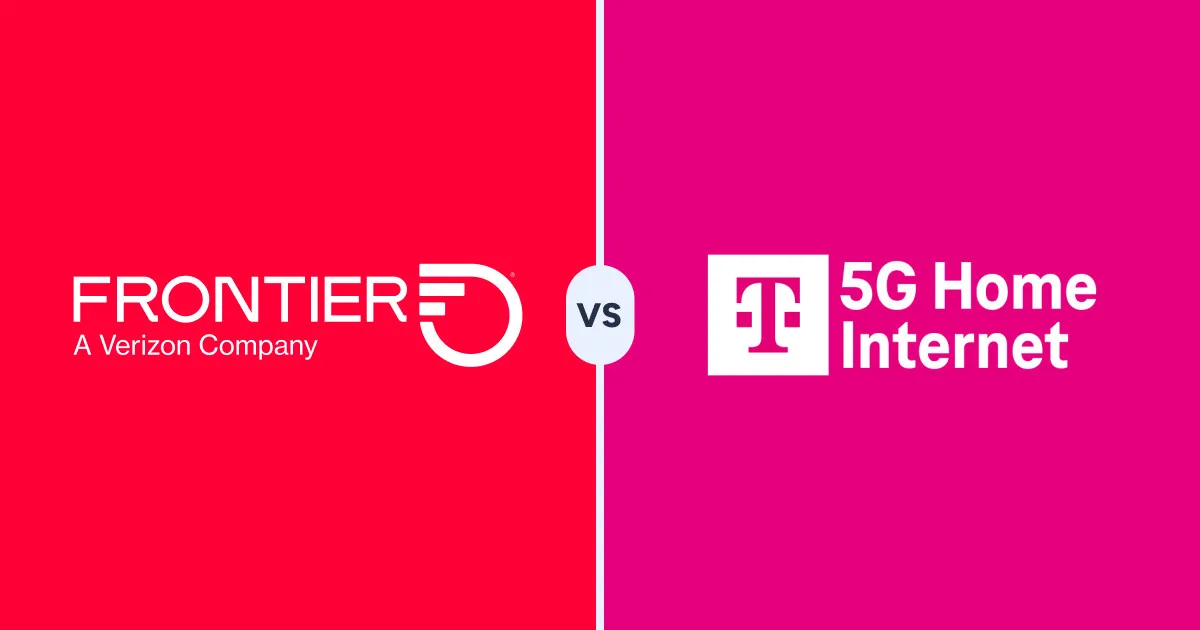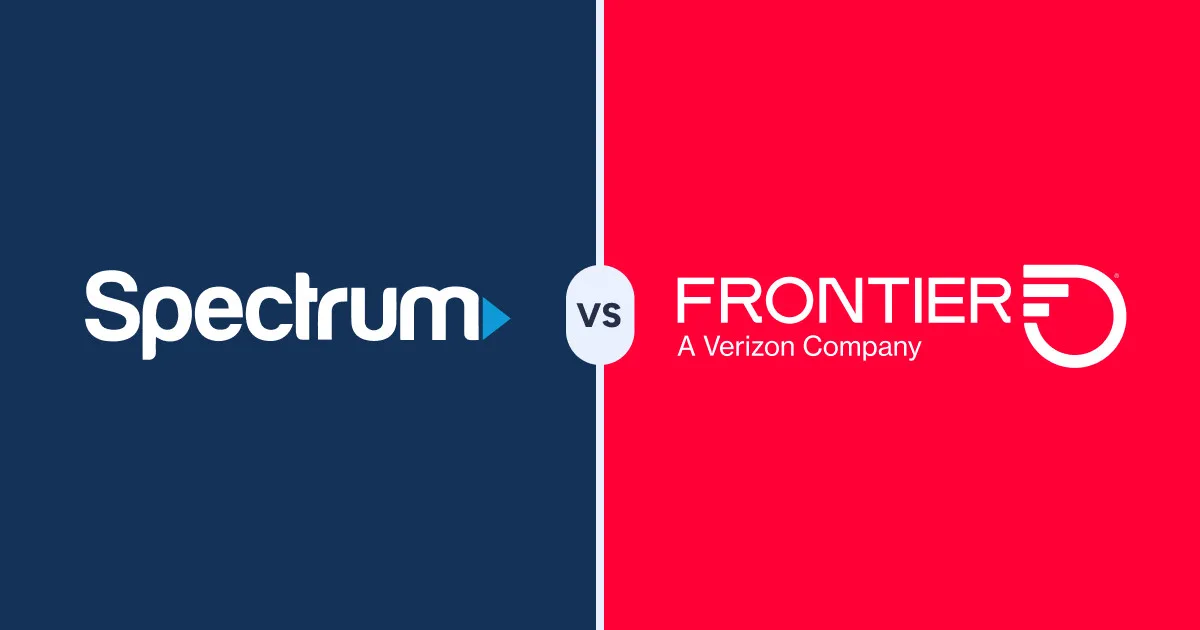Xfinity vs. Cox: Which Internet Provider Is Best for You?
Xfinity provides more value and receives better customer feedback.
Jan 13, 2026 | Share
Provider Comparisons (Versus)
-
Best for value
- Customer rating: 3.9 / 5
- Price: $40–$100/mo.*
- Speed: 300–2,000MbpsMbps
- Internet type: Cable, fiber
- Data cap: Unlimited
- Contract: Prepaid options and no contracts
-
Best for customer service
- Customer rating: 3.7 / 5
- Price: $55–$95/mo.**for 24 mos.
- Speed: 300Mbps–2,000Mbps
- Internet type: Cable
- Data cap: 1.2TB
- Contract: No contract, 1-year contract, and prepaid options
Compare Xfinity and Cox head to head
Xfinity provides more value, offering more speed per dollar. Xfinity also received better customer feedback in our annual customer satisfaction survey. Regardless, both of these cable internet service providers (ISPs) deliver great, high-speed internet services.
Pros and cons: Xfinity vs. Cox
 Pros:
Pros:
- More plan variety
- Better bundling options
- No term contracts
 Cons:
Cons:
- Limited availability on fastest plans
- Price hikes
 Pros:
Pros:
- Slightly higher data cap
- Straightforward pricing
 Cons:
Cons:
- Lack of mid-tier speed plans
- Expensive installation
- Price hikes after 12 months
Plans and pricing: Xfinity vs. Cox
Xfinity provides more speed for the money and has more plan variety. Both ISPs provide flexible month-to-month options for an extra charge and TV bundle deals.
Skip ahead to the Best TV and internet bundles section to learn more.
Xfinity plans and pricing
| Package | Price | Speed |
|---|---|---|
| 300 Mbps | $40/mo.* for 12 mos. | 300Mbps |
| 500 Mbps | $55/mo.* for 12 mos. | 500Mbps |
| 1 Gig | $70/mo.* for 12 mos. | 1,000Mbps |
| 1.2 Gig | $100/mo.* for 12 mos. | 1,200Mbps |
| 2 Gig | $100/mo.* for 12 mos. | 2,000Mbps |
Data as of 09/19/2025.
* For 12 months, no term contract. Restrictions apply. Autopay w/ stored bank account and paperless billing req’d. Taxes and fees extra and subj. to change. Reduced speeds after 30 GB of usage/line. Data thresholds may vary.
In general, you get more with Xfinity than you do with Cox—more speed per dollar and more choices. Take Xfinity’s 500 Mbps plan, for example, which provides 500Mbps for $55—a great speed for most users. For $25 more, you only get 500Mbps at Cox. That’s less speed for a higher price.
Xfinity also offers you more speed tiers, making it easy to find something that fits your needs and budget. For most customers, Xfinity’s 500 Mbps plan is hard to beat. For larger households or those with heavy internet needs, the Gigabit plan doubles the speed to 1,000Mbps. These mid-speed tiers are perfect for most customers and where Xfinity really shines.
How Much Internet Speed Do You Need?
Est. Time: 60 seconds
Answer 6 questions and get a personalized internet speed recommendation!
How many people in your household use the internet/WiFi on a daily basis?
How many devices in your home connect to the internet, including tablets, gaming consoles, and smart devices?
How many people in your household work from home?
What video quality do you use for streaming TV and movies?
How intensely does your household participate in online gaming?
Does your household download large files from the cloud or via the internet?
Cox plans and pricing
| Package | Price | Speed |
|---|---|---|
| Fast | $55/mo.* for 24 mos. | Up to 300Mbps |
| Go Even Faster | $85/mo.* for 24 mos. | Up to 500Mbps |
| Go Super Fast | $100/mo.* for 24 mos. | Up to 1,000Mbps |
| Go Beyond Fast | $115/mo.* for 24 mos. | Up to 2,000Mbps |
* Excludes taxes and fees. No annual contract. For 24 mos.
Cox internet plans offer straightforward pricing (regardless of region) and a month-to-month option for an extra $10 a month. Unfortunately, any way you slice it, Cox rates are more expensive than Xfinity and often for less speed in return.
Most subscribers will want the 300Mbps speed provided by the Go Faster plan at $50. However, it’s hard not to notice that Xfinity’s similarly priced 300 Mbps plan gives more speed.
If you need more bandwidth than 300Mbps, your only mid-tier option with Cox is the Go Even Faster, which delivers a solid 500Mbps. That’s enough speed for the vast majority of customers, it’s just a bit pricey.
Cox low-cost internet plans:
Cox has two great low-cost internet plans for individuals and families receiving government assistance:
ConnectAssist package: up to 100 Mbps for individuals receiving government assistance.
Connect2Compete package: up to 100 Mbps for families with children K-12 receiving government assistance.

Deals and promotions: Xfinity vs. Cox
- Enjoy a 5-year price guarantee on a 300Mbps internet plan for $40 per month, through Feb. 22
- Earn up to $500 per year by referring friends to Xfinity
- Get automatic enrollment in Xfinity Rewards for exclusive access to merch, free TV and movies, and rotating weekly offers
- Get a price lock guarantee for up to five years and unlimited data when you combine an unlimited mobile line with select internet speeds
- Get a gift card worth $125 when you refer a friend to Cox and earn up to $600 per year
- Veterans and community servants with GovX eligibility can get a gift card worth up to $200 with certain Cox home internet plans
Extra fees: Xfinity vs. Cox
| Equipment Fee | Installation Fee | Other Fees | |
|---|---|---|---|
| Xfinity | N/A | $100; self installs start at no cost | $10 (late payment) |
| Cox | $13.00/mo. | $100; self installs start no cost | $10.00/mo. (early termination), late fees based on state laws and regulations |
These provider’s hefty $100 installation fee is a tough pill to swallow when just starting out a new internet plan. It’s something to consider—unless you think you can get away with a self-install (offered free from both providers). Aside from the installation, Xfinity takes the cake when it comes to equipment costs. You’ll get equipment included with any plan from Xfinity, but you’ll have to pay a monthly fee with Cox.
Customer ratings: Xfinity vs. Cox
| Overall Rating | Reliability Rating | Customer Service Rating | Speed Rating | Price Rating | |
|---|---|---|---|---|---|
| Xfinity | 3.9 / 5 | 3.9 | 3.7 | 4.0 | 3.5 |
| Cox | 3.7 / 5 | 3.7 | 3.8 | 3.9 | 3.4 |
Xfinity received better customer ratings than Cox in our annual customer satisfaction survey. Customers rated Xfinity particularly high for speed satisfaction, where Xfinity performed better than any other national ISP, and 93% of surveyed Xfinity customers said their internet speeds meet their needs.
Cox also received good ratings, consistently placing in the top half of every category. Cox’s customer service ratings stand out as the best received for a cable ISP. And, like Xfinity, Cox’s ratings were favorable across the board; 89% of surveyed Cox customers said their speeds meet their needs, suggesting Cox is certainly capable of getting the job done.
Best TV and internet bundles
| Internet speed | TV channels | Price | Details | |
|---|---|---|---|---|
| 300 Mbps + Choice TV | 300Mbps | 10+ | Starting at $55/mo.* | View Plans |
| 300 Mbps + Popular TV | 300Mbps | 125+ | Starting at $90/mo.* | View Plans |
| 300 Mbps + Ultimate TV | 300Mbps | 185+ | Starting at $110/mo.* | View Plans |
| Cox Go Even Faster + Contour TV Starter | 500Mbps | 75+ | $131/mo.† for 24 mos. | View Plans |
| Cox Go Even Faster + Contour TV Preferred | 500Mbps | 140+ | $185/mo.† for 24 mos. | View Plans |
| Cox Go Even Faster + Contour TV Ultimate | 500Mbps | 250+ | $222/mo.† for 24 mos. | View Plans |
* Internet: For 12 months. No term contract. Taxes and equipment not included. Includes $10/mo automatic payments and paperless billing discount. TV: No term contract. Broadcast TV and regional sports fee extra; price subj to change. Taxes and equipment not included. Pricing and plan names may vary by region.
†Prices include applicable monthly recurring service fees and applicable discounts. Excludes charges for existing Cox services. Additional one-time charges, activation fees and monthly equipment fees may apply. Prices do not include applicable taxes, usage-based charges, fees, and surcharges, which are subject to change. Prorated charges may appear on your bill if you change services before the bill cycle is complete.
Xfinity’s value shines here again as its bundles offer more speed and channels at lower prices. The 2 Gig + Popular TV plan delivers a screaming internet speed of 2,000 Mbps with a terrific 185+ channel lineup (including five premium channels) starting at $150 per month. That’s a lot of bang for your buck.
Cox bundles are significantly more expensive for the internet speed and channel count you get. On the bright side, Cox allows subscribers to choose one premium channel for the first 12 months of a Contour TV Preferred subscription.
Internet types: Xfinity vs. Cox
| Internet type | Details | |
|---|---|---|
| Xfinity | Cable | View Plans |
| Cox | Cable | View Plans |
Both Xfinity and Cox are primarily cable ISPs, meaning they utilize coaxial cable (the same kind of cable used for cable TV) to bring internet service to your home. Cable internet is a fantastic service that can achieve some pretty incredible speeds, but it’s not perfect. The single biggest drawback of cable internet is the upload speed, which is usually only a small fraction of the download speed. This isn’t a huge concern as most customers are download heavy users and get by just fine with limited upload bandwidth.
Xfinity does offer a fiber plan in select areas; however, it’s incredibly expensive and an impractical option for most customers. Cox also offers some fiber plans, but availability is extremely limited.
Data caps: Xfinity vs. Cox
| Data Cap | Details | |
|---|---|---|
| Xfinity | N/A | View Plans |
| Cox | 1.25TB | View Plans |
Cox plans come with a 1.2TB data cap and a $10 charge for every 50Gb you go over, up to a max of $100.
On the other hand, Xfinity offers unlimited data, so you won’t have to worry about any fees or tracking your data usage.
For most customers, 1.2TB of data is a lot and completely sufficient. But unlimited data comes in handy, especially if you have a gigabit or multi-gig plan that can burn through data quickly.
Contracts: Xfinity vs. Cox
| Contract length | Details | |
|---|---|---|
| Xfinity | Month-to-month, prepaid NOW internet plans | View Plans |
| Cox | 1 year, month-to-month option for $10/month extra, prepaid (new) | View Plans |
Cox offers 12-month contracts and a month-to-month options. Xfinity doesn’t require a term contract for its internet plans, which is an added bonus. Cox and Xfinity usually have significant price hikes after the first 12 months, so keep an eye on your promotion end date.
Installation: Xfinity vs. Cox
| Installation options | Details | |
|---|---|---|
| Xfinity | $100 for professional installation; no cost for self-install | View Plans |
| Cox | $100 for professional installation; no cost for self-install | View Plans |
Both providers charge $100 for a professional installation. But, if you’re just getting internet, you may be able to get away with self-installation, which is free from both Xfinity and Cox.
Availability: Xfinity vs. Cox
Xfinity and Cox have huge coverage areas. There’s a good chance you have access to at least one of them. Unfortunately, Xfinity’s fiber service is much rarer than its cable internet, and it’s so pricey in many areas that it doesn’t make sense for most customers.
Final call: Xfinity vs. Cox
Overall, the win goes to Xfinity.
Xfinity gives you more internet speed per dollar and more value in general. You get a great selection of plans and no term contracts, making it easy to find something that works for you. The bundles are better too, with more channels and faster speeds. You simply get more, usually for less, with Xfinity. On top of all that, Xfinity received better customer feedback than Cox in our annual customer satisfaction survey
That isn’t to say Cox isn’t a good ISP—it provides fast and reliable cable internet. And even though it didn’t rate as highly as Xfinity, the majority of surveyed Cox customers were either “very satisfied” or “completely satisfied” with their internet service. Additionally, Cox’s pricing is consistent nationwide, keeping things simple and straightforward.
Methodology
Our HighSpeedInternet.com editorial team bases our analyses on customer input from our annual customer satisfaction survey, results from our speed test tool, and proprietary internet provider data on speeds and pricing. To strengthen our research, we look closely at provider contracts to get hard-to-find information on price hikes, data caps, and extra fees, and we keep tabs on the latest news reports and online reviews. When applicable, we also rely on our personal experiences testing these services.
Author - Austin Aguirre
Austin worked as a broadband technician installing and troubleshooting countless home internet networks for some of the largest ISPs in the U.S. He became a freelance writer in 2020 specializing in software guides. After graduating with a BS in technical communication from Arizona State University, he joined the team at HighSpeedInternet.com where he focuses on home network improvement and troubleshooting.
Editor - Rebecca Lee Armstrong
Rebecca Lee Armstrong has more than six years of experience writing about tech and the internet, with a specialty in hands-on testing. She started writing tech product and service reviews while finishing her BFA in creative writing at the University of Evansville and has found her niche writing about home networking, routers, and internet access at HighSpeedInternet.com. Her work has also been featured on Top Ten Reviews, MacSources, Windows Central, Android Central, Best Company, TechnoFAQ, and iMore.




